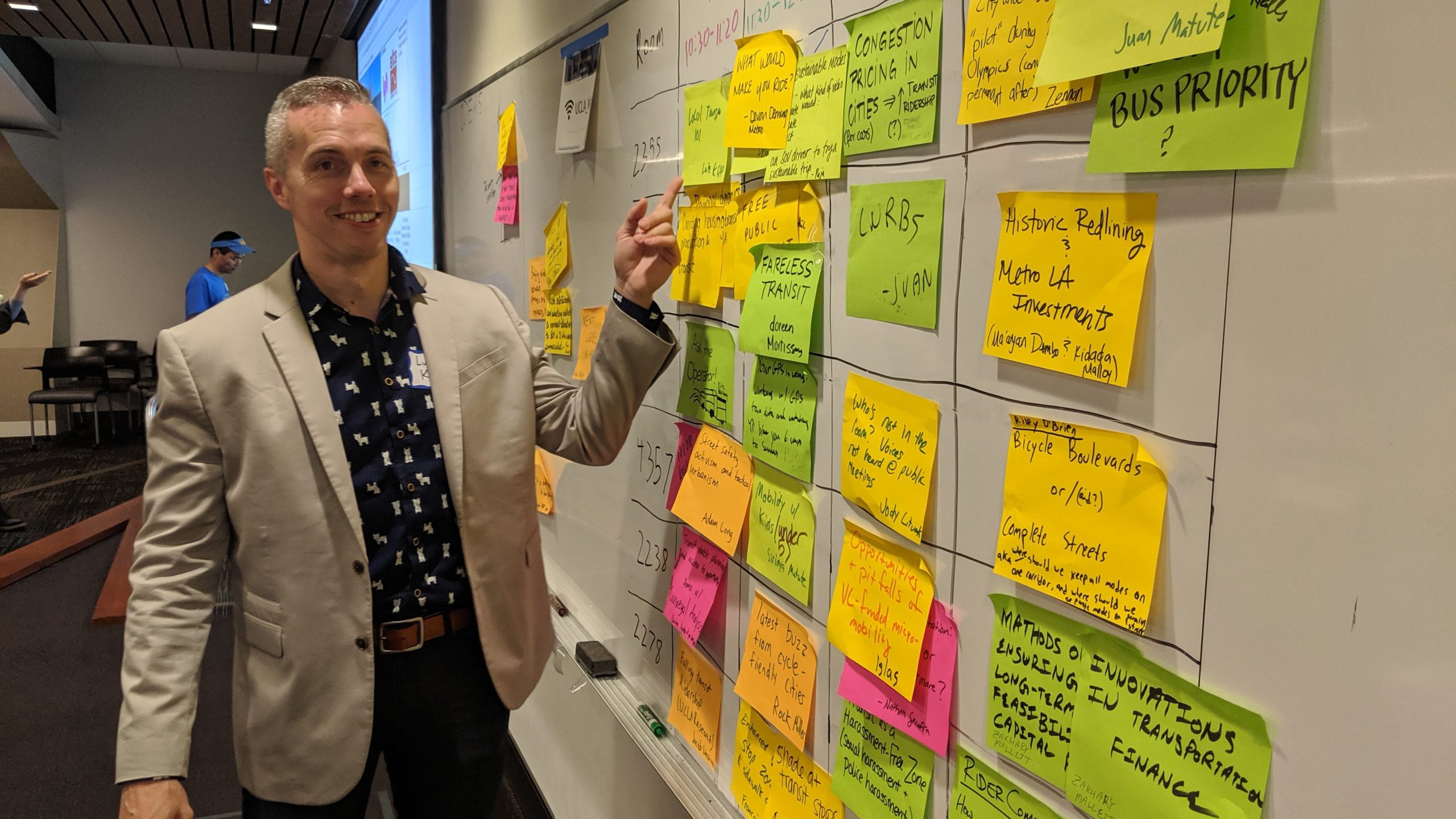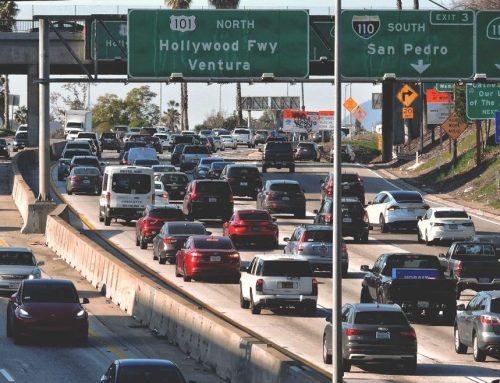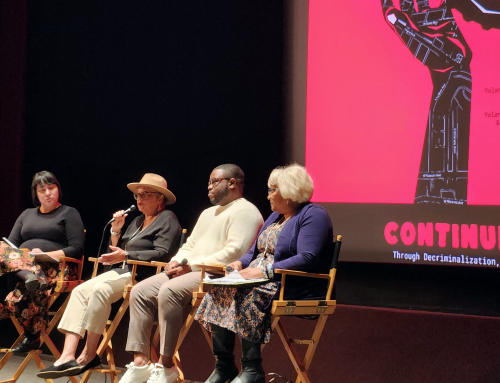What happens when you bring together hundreds of transportation professionals, students and advocates, and give them full reign on a conference?
TransportationCamp!
On Saturday, July 15, 115 professionals, advocates, researchers, and enthusiasts bused, biked, and made their way to Westwood for the second TransportationCamp LA. Hosted by the UCLA Institute of Transportation Studies, this is the second such event. The first was also hosted by UCLA ITS in 2015.
The opening reveille at #TranspoCampLA19 pic.twitter.com/mCKwVidxG3
— Juan Matute (@Juan_Matute) July 13, 2019
Unlike a typical conference with pre-scheduled programming and speakers, TransportationCamp is a flexible, open, and attendee-driven gathering in which anyone can propose and lead a session, with topics ranging from transit planning to congestion pricing and data science. The stage is set in the morning, and participants take the lead in filling in the schedule.
Interested in bus-only lanes and want to get a discussion going with others? Write a catchy title on an oversized sticky note and submit to the session board. Others looking to speed up buses will join the session.
This year’s TransportationCamp LA held 29 sessions on a range of issues facing the city and broader transportation industry. They were informed by the collective expertise and interests of the mix of attendees, including representatives from Metro, Los Angeles and other local jurisdictions, advocates, and other planners working on multiple sides of intersecting issues.
Having a great time at #transpocampla19 solving all of the problems. pic.twitter.com/n37T0nFcJw
— Jason Islas (@jasonislas) July 13, 2019
Many sessions looked into the advocacy and funding struggles of making sustained progress on effective and equitable transit and active transportation infrastructure. Traffic engineer Rock Miller presented his experiences implementing active transportation projects, as well as a look into how other cities are finding success with bike infrastructure.
Lessons to get active transportation projects done w/ Rock Miller:
1. Poll
2. Prove w data
3. Tools to get things done.#transpocampla19 pic.twitter.com/vbaONIWL18
— Sirinya Matute (@sirinyamatute) July 13, 2019
At the “Street Safety and Tactical Urbanism” discussion, advocates and planners recommended ways to frame tactical actions as supportive — rather than antagonistic — of the steps they want agencies to take, and to invite key decisionmakers to visit sites on foot or by bike to experience conditions firsthand.
Other discussions explored under-discussed facets of the transit experience, such as traveling with children or designing bus shelters to give riders better shade while waiting. In “Mobility with Kids Under 5,” Sirinya Matute of Big Blue Bus expanded on the special considerations parents and caretakers must take when traveling with children in non-driving modes, and how transit agencies and cities can work to improve that experience. As traditional transit service is inherently gendered, it often fails to adequately serve mothers and caretakers, who typically take multiple, short-distance trips in off-peak hours. Car seats, strollers, and locations of restrooms are also a constant consideration, requiring parents plan out modes, routes, and accommodations policies ahead of time.
Starting off #transpocampla19 with one of my favorite types of charts: isochrones with @ansoncfit and conveyal analysis tool pic.twitter.com/4JESdOKvbY
— Hunter Owens (@hunter_owens) July 13, 2019
Transit technology, data, and new mobility options also had a strong presence at the camp. Juan Matute, UCLA ITS deputy director, presented how curb management policies might be adapted to replace underutilized street parking with policies that more efficiently serve the needs of micromobility riders, courier network services, and ride-hailing drop-offs.
In “Rider Communications,” GMV Syncromatics’ Steven White led a discussion about the many avenues — from displays on platforms to phone push notifications — transit agencies can take to reach riders about service updates and disruptions, and the challenges of keeping messaging consistent.
For more observations, discussion, and photos, check out #TranspoCampLA19 on Twitter.





